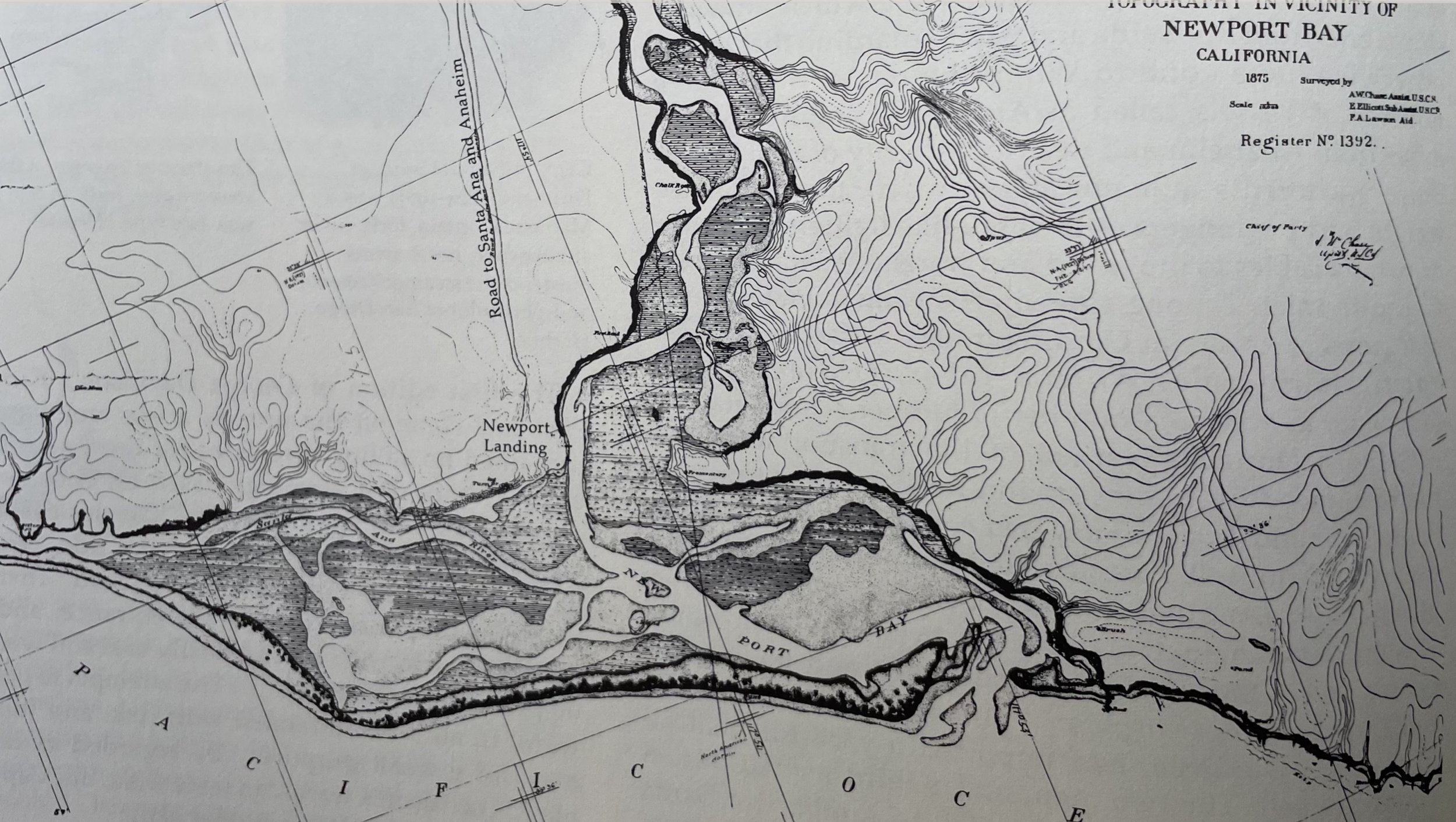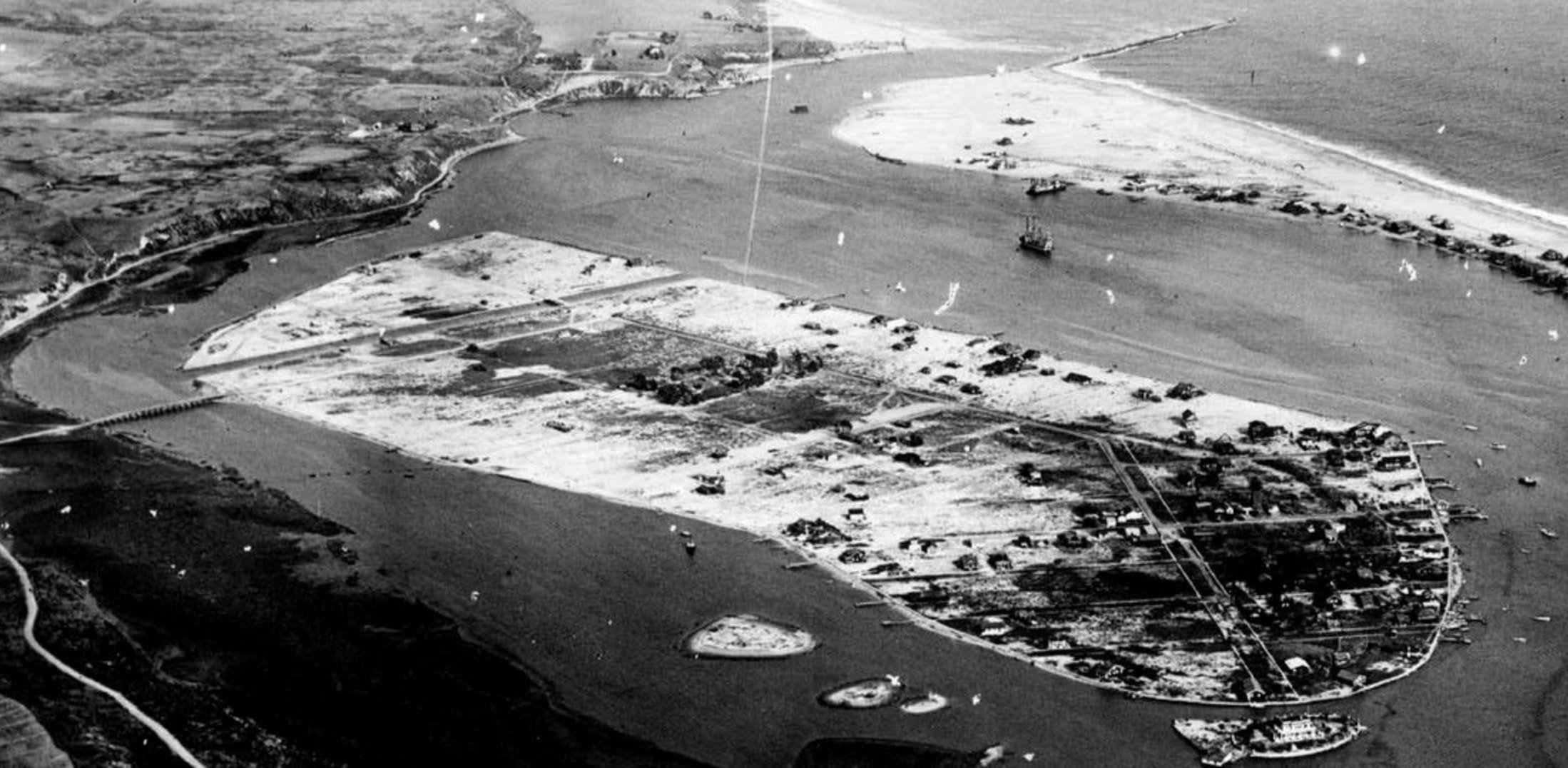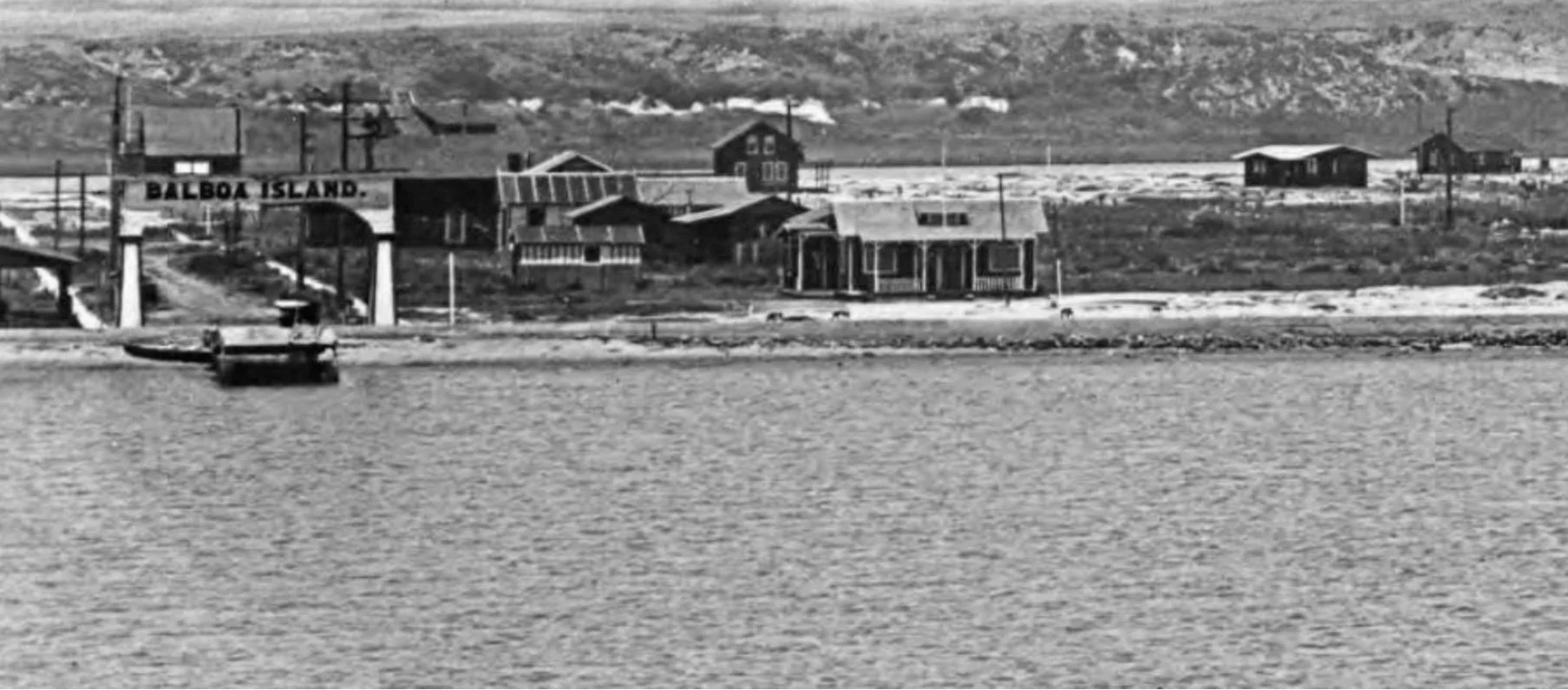The Prophet in 1909 Who Predicted Newport’s Beautiful Future (Copy)
By: William Lobdell
W.S. Collins could be called many things–a visionary and schemer are two words that immediately come to mind (more on that in a future column)–but above all, he was a very clever man. By creating Balboa Island’s 128 acres out of a small mosquito-ridden mudflat, Collins believed he had found a way to, as he put it, “turn sand into money.” (By the way, just the opposite happened. He and his Balboa Island development would go bust by the mid-1910s.) But in 1906, when Collins began dredging the bay for sand, silt, and mud to heap on top of his then-worthless, mostly submerged mudflat, his alchemy dreams seemed to be becoming reality.
But he wanted more.
In 1909, Collins wanted to turn more sand into more money and proposed a massive enlargement of Balboa Island’s footprint, extending it 800 feet (nearly three football fields) into the main harbor channel that ran between the island and the peninsula. This land (mudflat?) grab would have left only a narrow 700-foot-wide waterway for vessels to travel. In fairness, this didn’t seem like a crazy idea at the time since the harbor was home to only a couple dozen or so boats—makeshift sailboats, primitive motorboats, rowboats, and two yachts–according to one resident’s nautical census.
Though one newspaper headline called Collins’ proposal a “rape of Newport Harbor,” the Orange County Board of Supervisors approved the plans. But back then, the federal government had the ultimate say-so, and the U.S. Army Corps of Engineers sent Captain D.E. Hughes to Newport Harbor to investigate. It picked the right man for the job.
Captain Hughes’ prescient report–though long forgotten–should be in Newport Beach’s Documents Hall of Fame. With uncanny accuracy, the engineer predicted the future of Newport Harbor and laid out the case for its protection from overzealous developers such as Collins. Captain Hughes argued that it wasn’t in the public interest to fill in the bay to create land and one-time profits for developers; instead, the waterways should be dredged to create a better harbor for the water-loving public.
Captain Hughes’ conclusions are even more mind-blowing when put into historical context. In 1909, Newport Beach’s population was all of 445. And Newport Harbor consisted mostly of mudflats and sandpits and, like the harbor mouth, was barely navigable. It’s hard to imagine anyone looking at the newly incorporated town of Newport Beach and envisioning a thriving city that would eventually be crowded with homes and a bay filled with yachts. But Captain Hughes did.
Here’s a passage near the beginning of his report from 1909. (Note: The quoted sections of the report here have been lightly edited.)
I sat in the Balboa Pavilion watching pleasure parties on the waters, and my mind went back to the Declaration of Independence, that all men are created free and equal and endowed by the Creator with the inalienable right of the pursuit of happiness. Then I looked and thought far into the years to come, when [the Los Angeles area] will be one of the most densely populated in the land and when multitudes will seek Newport Bay for pleasure and rest.
And I wondered how much we today should do towards conserving for generations to come the God-given right of the pleasure of sailing hither and yon over those quiet land-locked waters that yet belong to all the people.
This sets the remarkable tone of the report, which sounds more like a Founding Father than an Army engineer. But Captain Hughes’ reputation (he helped build San Pedro Harbor and would later be involved in the construction of the Newport Harbor jetties) gave him the leeway to go off the standard script. He even takes a direct shot at Collins.
Shall we acquiesce in having the waters narrowed down for the sole benefit of any individual, who looks back at only the dollar per acre he paid and forward to only the hundred of dollars a lot which he does not need?
For a brief section of his report, Captain Hughes does don his engineer’s hat. He writes convincingly about the environmental damage a narrower channel would create, but it’s written in engineer-ese and is all too boring to repeat here. Let’s just say, even from solely an engineering standpoint, he couldn’t stand the idea of a Balboa Island that’s somewhere in the neighborhood of 50 percent larger than its original size and hogging the harbor.
But his report comes back to life when he again becomes a soothsayer, describing a future Newport Beach that sounds a lot like the city today.
Someday, the mesa and all around will be covered with homes, and many people will come to enjoy the day [in Newport]; and it is not the land, but water, they will want to see.
He even makes the argument that a more picturesque harbor would increase home values on Balboa Island over the long term–before taking another stab at Collins.
Whatever prices may be today, the time is coming when Balboa Island, with waters wide in front, covered with sails and happy people, would be worth far more than it would if enlarged to include the present mudflats and leave only a contracted channel. If the people permit a claimant to fill a single acre out of ten mudflats, they have paid him more than his due. One cannot lose what he never had.
In his conclusion, Captain Hughes wonders with a dose of optimism if his report might benefit future generations who will find pleasure in a stunning harbor packed with boats and other recreation, not oversized residential islands.
If today some word of mine will help to save another acre of the peoples’ bay, over which a poor man may sometimes sail and smile, I shall be ever glad.
If this memorandum is not all about engineering, it is because I am enjoying the grandeur of Newport Bay, where days of pleasure and rest will be passed by countless thousands through many ages.
The heartfelt report did its job. The U.S. government immediately put a stop to W.S. Collins’ plan, and “countless thousands through many ages” have indeed enjoyed carefree days on the bay, fulfilling the Army engineer’s prophecy.
Captain Hughes, from the future, we look back and salute you.
William Lobdell is an award-winning journalist and host of the local history podcast, “Newport Beach in the Rearview Mirror,” which can be found on Apple Podcasts and Spotify. Follow him on Instagram: @Newport_in_the_Rearview_Mirror.




